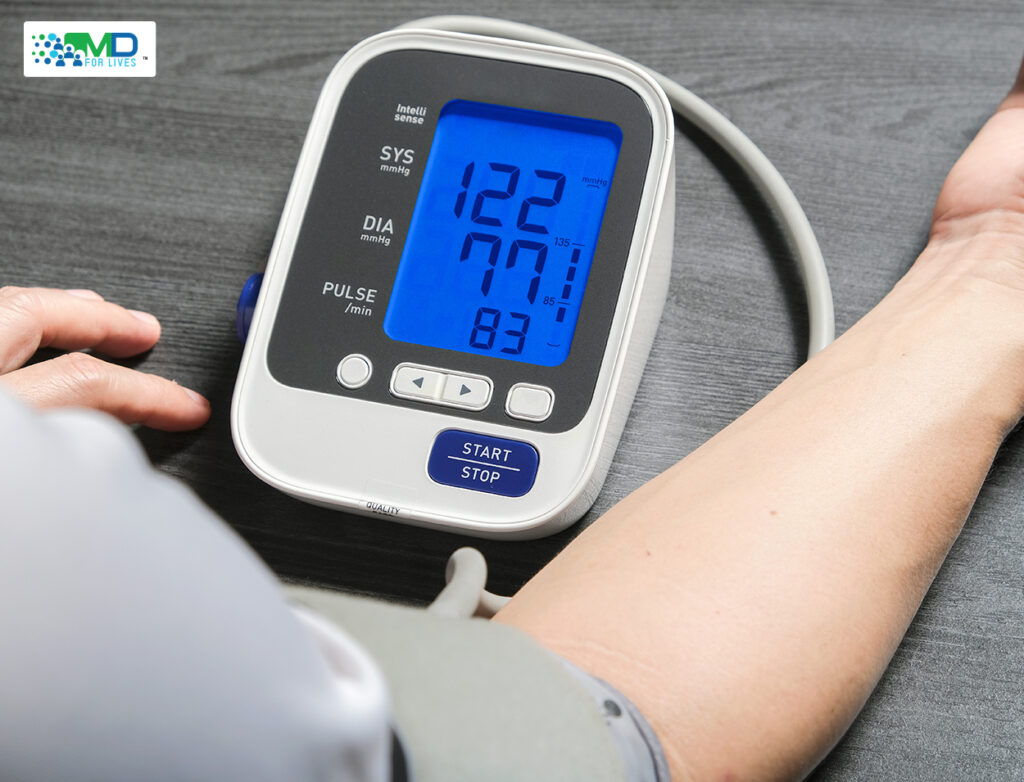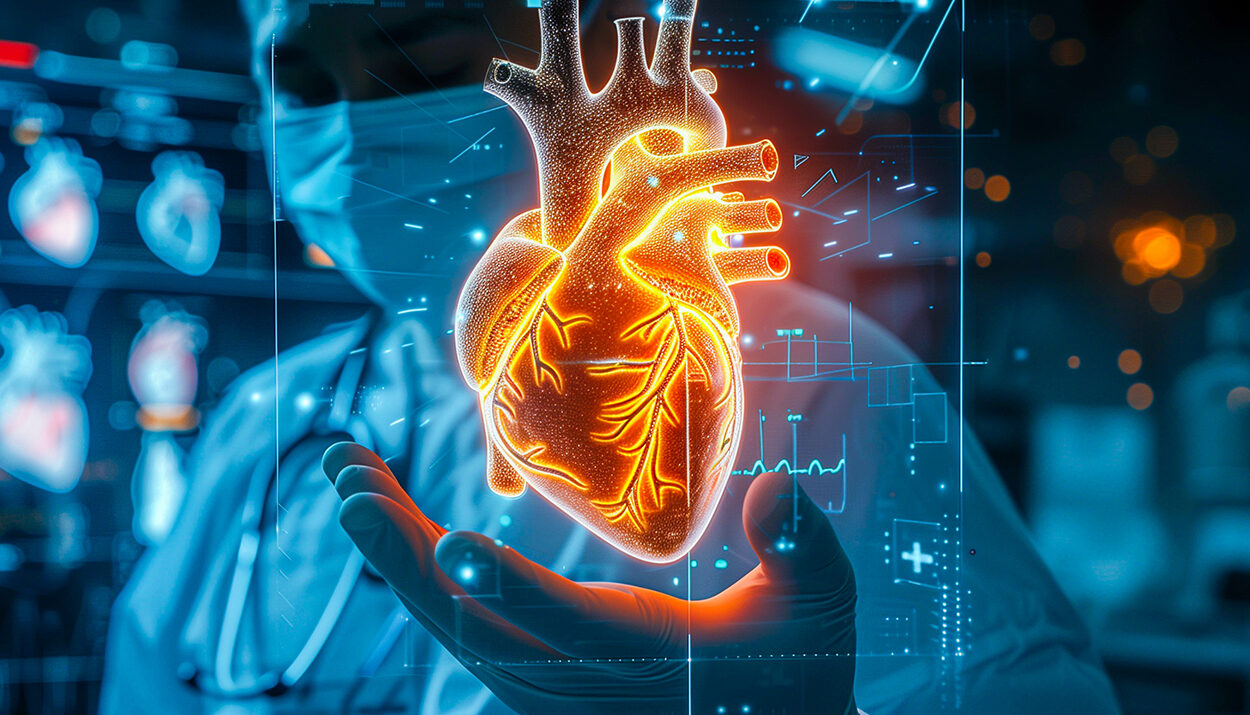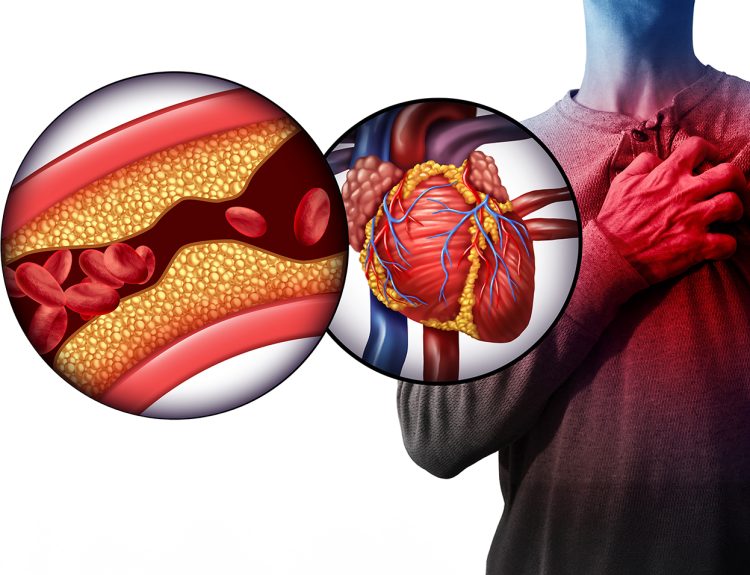“Did you know that in the U.S., someone dies of cardiovascular disease every 34 seconds? Nearly 2,500 people in the U.S. die from cardiovascular disease every day. Too many people are dying from heart disease and from stroke, which remains the 5th leading cause of death. Together, they kill more people than all cancers and accidental deaths- the #2 and #3 causes of death– combined.”
– Keith Churchwell, M.D., FAHA, the volunteer president of the American Heart Association.
At present, cardiovascular diseases (CVD) are one of the leading causes of death, as per reports of the CDC. Despite the advancements in medical science, such stats serve as glaring reminders that CVD is still a major public health challenge. Therefore, the need for advanced heart innovations in treatment, diagnosis, and medical technology remains essential to improve patient well-being.
Cardio-focused medical surveys play a vital role in this pursuit. These targeted questionnaires help gather insights directly from healthcare professionals. Their insights help top med-tech companies and pharma brands to develop new drugs, procedures, AI-driven diagnostics, and patient management strategies.
Additionally, medical surveys also compensate physicians for their active contribution to healthcare innovations.
The Role of Cardiologists in Heart Disease Treatment
If you think logically, pharmaceutical and med-tech companies are the ones responsible for innovations in heart disease treatment. So, the question here is, why does a cardiologist’s opinion matter?
That’s because cardiologists are specialized professionals with firsthand clinical experience. This direct approach helps them understand the unique challenges and limitations of existing treatment procedures in the cardiology spectrum. Hence, they can easily point out the areas of improvement and refinement. This is the reason why their opinions are valuable and help enhance drug formulations, medical devices, and treatment guidelines.
Moreover, the rise of advanced cardiac technologies has brought about significant advancements in cardiac care. That, too, has been possible because of the practical insights of cardiologists. For instance, the advent of AI in cardiac surgery has resulted in enhanced precision, efficacy, and better patient outcomes.
How Medical Surveys Contribute to Heart Innovations
Now that you’re aware of the role of cardiologists in heart disease innovations, let’s look at the contribution of medical surveys in this endeavor:
-
It helps identify existing gaps in cardiac care
Medical surveys help determine the unmet needs of patients. The involvement of cardiologists in surveys, therefore, helps companies identify gaps in existing cardiac care and diagnostics.
For instance, surveys might highlight the need for better heart failure therapies or improved early detection tools. Medical market research companies use these insights to drive cardiac innovations.
-
It helps refine cardiovascular drug development
Survey participation helps refine drug development for heart innovations. A physician’s feedback on the safety and efficacy of the drugs is very much crucial.
Hence, their inputs help optimize drug formulations, dosage requirements, and delivery, thereby boosting patient compliance and treatment success.
-
It helps improve medical devices and wearables
Medical surveys also significantly contribute to the improvement of cardiac devices and wearables.
Cardiologists offer critical feedback on the functionality, reliability, and usability of devices. Their insights help in design enhancements and improved performance.
Similarly, surveys on wearables offer crucial data on accuracy, battery life, and system integration. This leads to more effective remote monitoring solutions, which ultimately contribute to innovations in cardiology for better patient outcomes.
The Financial & Professional Benefits of Participating in Surveys

Physicians serve as the forerunners of cardiac care innovation. However, their participation in medical surveys fetches some serious benefits both financially and professionally:
-
Compensation for expert opinions
Physicians get rewarded handsomely for their participation in cardiology surveys. Although compensations depend on the complexity of the questionnaires, rewards usually range from $100- $200+ per survey.
Added to that, specialized surveys with in-depth evaluations can offer even higher compensation. This provides a flexible way for cardiologists to supplement their income while contributing to important medical advancements.
-
Staying up-to-date on industry trends
Cardiology surveys also provide valuable professional benefits. They offer early insights into new drugs, ongoing clinical trials, and the latest medical device innovations.
This early exposure enables cardiologists to stay updated about the recent advances in cardiology before they become commercialized. Such an approach enhances their clinical practice and patient outcomes.
-
Networking & thought leadership
Survey participation enhances a cardiologist’s professional standing and helps create networking opportunities. Their valuable feedback may lead to collaborations with KOLs and academia.
Moreover, consistent participation could even result in contributions to clinical guideline development, and advanced heart innovations. This elevates a physician’s role as a thought leader within the cardiology community and helps build professional relationships.
Real-World Innovations Influenced by Cardiologist Surveys
Let’s move on to some real-world scenarios to understand how paid cardiology surveys have helped bring in innovations in heart disease treatments:
AI in heart disease diagnosis
Cardiology surveys played a significant role in the development and refinement of AI-driven tools for ECG and echocardiography analysis. Added to that, a cardiologist’s feedback on the clinical utility and accuracy of these AI algorithms has been further instrumental in their evolution.
-
Enhanced Diagnostic Accuracy
AI algorithms have showcased tremendous accuracy in detecting various cardiac conditions. For instance, AI-driven ECG translations have shown outstanding results in improving the detection of arrhythmias. ST-segment changes, QT-prolongation, and various other ECG-related abnormalities.
-
FDA Approvals and Clinical Adoption
Since 2017, the FDA has approved an array of AI-based algorithms for optimal ECG interpretations. This includes enhancements in heart innovations like detecting arrhythmias and improved diagnoses related to structural and ischemic diseases.
These approvals indicate an increasing acceptance and integration of AI in clinical settings.
-
Global Implementation
The adoption of AI in ECG analysis is no longer restricted to specific regions. Hospitals and clinics worldwide are implementing AI-driven ECG systems to improve their diagnostic accuracy and efficiency. Studies have highlighted the effectiveness of AI-enabled ECG analysis in rightfully predicting atrial fibrillation across diverse patient populations.
Remote monitoring and digital health

Physician surveys have also been instrumental in the enhancement of wearable heart monitors, which eventually made them more user-friendly and clinically relevant. Cardiologists’ feedback on the practicality of these devices, their data accuracy, and their integration into clinical workflows has driven significant improvements.
Take the case of COVID-19, for example. Research suggests that the horrendous COVID-19 pandemic played a significant catalyst’s role in the acceleration of remote monitoring for cardiovascular disease management. Without the help of medical surveys and cardiology market research, this would have been clearly impossible!
Personalized cardiac treatments
Cardiologists’ input has also contributed to the increasing traction of personalized cardiac treatments. Their insights into the clinical utility of genetic testing and the application of pharmacogenomics are truly invaluable and have led to the development of advanced heart innovations.
As a case in point, let’s look at the surveys conducted between 2021 and 2023. It supported the integration of pharmacogenomics in heart disease treatment. It highlighted the potential to reduce adverse drug reactions and optimized medication selection based on patients’ genetic profiles. This shift towards personalized medicine ensured more effective and safer cardiac care.
These are a handful of innovations in cardiology that can be considered as breakthroughs in the cardiac care spectrum. This serves as a vivid proof of how cardiologists’ valuable insights and feedback through surveys helped pave the way for such significant transformative advancements.
How Cardiologists Can Get Involved in Paid Surveys
As a practicing cardiologist, by now you must’ve understood the essence of your participation in paid medical surveys. So, to help you out a bit more, here’s a guide to get you started with medical surveys.
-
Join reputable medical market research panels
The first and foremost thing for you is to look for reputable and authentic medical market research platforms. So, make sure to sign up with trusted platforms like MDForLives. We offer exclusive surveys with competitive honoraria.
Moreover, our surveys are specifically tailored to the expertise of cardiac specialists.
-
Make sure to optimize your survey profile
If you want to maximize your opportunities for receiving high-paying and relevant surveys, you should mandatorily complete your profile information. This includes adding your specialty, years of experience, areas of clinical interest, medical license, and more.
On top of that, you must also respond quickly to survey invitations. That’s because spots for high paid surveys are often limited due to specific targeting criteria.
-
Ensure compliance and data security
Your practical insights are valuable and confidential as well. Therefore, it is essential for you to only register for survey platforms that adhere to data privacy regulations.
At MDForLives, we strictly adhere to regulatory compliances such as CCPA and GDPR. This conveys that your sensitive data is safe with us.
Cardiology Surveys: The Facilitators of Innovative Cardiac Care
Cardiology medical surveys are indispensable for driving enhancements in heart disease innovations. These provide a direct channel for healthcare professionals to influence advancements in drug development, medical devices, AI-powered diagnostics, and personalized medicine for heart innovations.
Through their valuable insights, cardiologists not only contribute to the development of safer and more effective treatments but also benefit professionally by receiving fair compensation. On top of that, they also get access to the latest information and networking opportunities.
So, for cardiologists seeking a flexible and impactful way to contribute to medical innovation, survey participation can be a worthy investment! Register with MDForLives and become a part of an exclusive community, and stay at the forefront of cardiac care breakthroughs.
FAQs
-
How do cardiologists contribute to the development of new heart disease treatments?
Cardiologists, through sharing their direct feedback and experiences in medical surveys, help to significantly contribute to cardiac care. Their practical insights are instrumental in revolutionizing drug developments, treatment procedures, and also help shape the direction of research.
-
Why is cardiologist feedback important for pharmaceutical companies developing cardiovascular drugs?
A cardiologist’s real-world experiences help them offer their perspectives on drug safety and efficacy across diverse patient populations. This valuable input eventually helps optimize drug formulations, dosage requirements, and delivery methods, which leads to better patient outcomes.
-
Do cardiologists receive compensation for contributing to market research and surveys?
Yes, cardiologists receive handsome compensation for their time and energy invested in market research surveys. The amount of compensation varies depending on the length and complexity of the concerned survey.
-
What are some recent innovations in heart disease treatment influenced by cardiologist feedback?
Recent innovations in cardiology include advancements in AI-driven ECG analysis for improved diagnostic accuracy. Refinement of user-friendly wearable heart monitors for remote patient management is also one of the latest innovations, along with growing integration of pharmacogenomics for personalized cardiac treatments.

MDForLives is a global healthcare intelligence platform where real-world perspectives are transformed into validated insights. We bring together diverse healthcare experiences to discover, share, and shape the future of healthcare through data-backed understanding.








